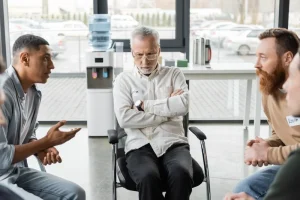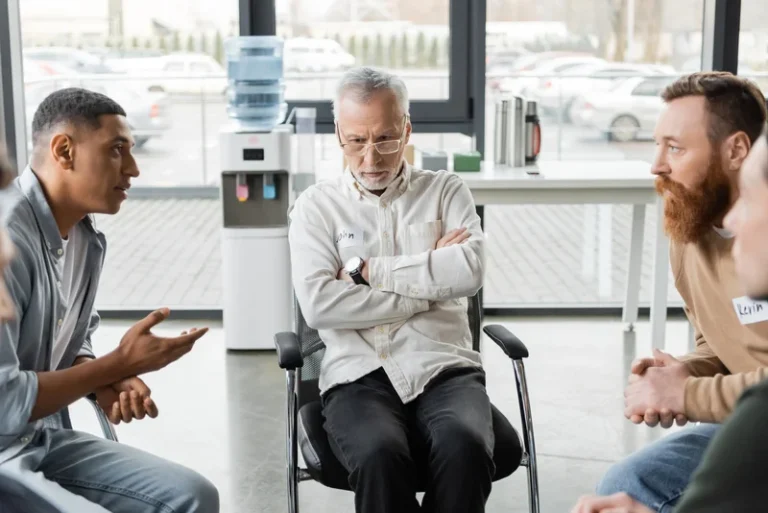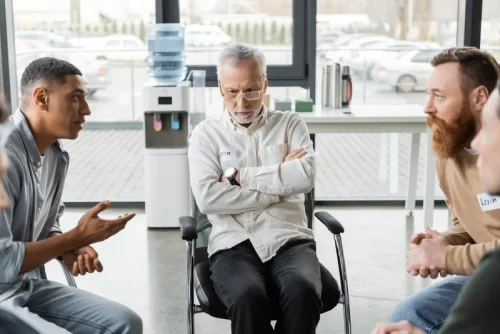
The open discussion and peer support reduce isolation risks that come from the stigma of seeking substance abuse treatment. Knowing that others share the same concerns allows them to speak boldly; it thus opens up channels for learning and growing. While you often discuss the difficult parts of substance abuse in group therapy, it’s important to celebrate your successes.
The Importance of Advocacy and Raising Awareness About Addiction

This topic emphasizes the importance of group topic for substance abuse self-compassion, helping members avoid self-criticism and recognize that setbacks are part of the journey. This topic discusses the importance of forgiveness, both of oneself and others, and offers strategies for letting go of past pain. The framework is meant to help reduce the amount of opioids that end up on the black market by linking pharmacies, clinics and other organizations. The study, published in the International Journal of Medical Informatics, was supported by Alam’s National Science Foundation CAREER award. Many more people — an estimated 2.5 million people in the U.S. — live with an addiction to opioids.

What are Common Substance Abuse Group Topics?
In support groups, you are surrounded by other individuals that have similar goals to you. They want to overcome addiction, get help, and be happy in their own skin. For people who are the only ones in their family that deal with substance abuse, it can be difficult to admit that you have a problem. Surrounding yourself with other people who also have their own struggles can make you feel less out of place. She has a Bachelor’s degree in Psychology and a Master’s degree in Social Work. With 17 years of relevant experience, she has helped several clients in their journey to recovery from addiction.

A list of possible group therapy activities
Although many people may overlook this particular topic, it is important to consider what those in recovery would say to their younger selves if they could. For this reason, group topics for substance abuse often encourage members to consider what they would say, what advice they would give, and what direction they would point their younger self in. Discussing the topic of gratitude is an everyday activity in group therapy sessions. Conversations may cover aspects that group members are grateful for, what gratitude is, and how to show gratitude.
Keep reading to discover how group members learn and grow while developing better interpersonal skills, in general at top rehab facilities, as well as specifically with our programs at Changes Healing. The lack of substances in a body that has grown to rely on them can result in negative mental health effects, leading to depression, anxiety, and other struggles. Checking in on your group members can ensure that everyone is on the right path towards recovery and isn’t slipping into a relapse. Zainab is a skilled member of the ChoicePoint team of medical content writers.
- This shared vulnerability creates a strong therapeutic alliance in the group, where members feel comfortable expressing their thoughts and emotions.
- This topic encourages members to create vision boards or write about their goals and dreams, providing a visual representation of the life they want to achieve.
- Aaron has over 30 years of experience in marketing, strategy, leadership and business development .
- This is particularly useful because, in recovery, it is essential to be mindful of the acronym HALT, which stands for hungry, angry, alone, tired.
- Our team will eve call your insurance provider to get your treatment approved.
One of the most profound benefits of group therapy is the emotional support it provides. Participants bond over their shared experiences, which leads to a deep understanding and a feeling of acceptance. Hearing others articulate their struggles can alleviate feelings of shame and isolation. This shared vulnerability creates a strong therapeutic alliance in the group, where members feel comfortable expressing their thoughts and emotions. In turn, this emotional sharing can bolster self-efficacy, as individuals recognize that they are not alone in their journey. The social support nurtured within group therapy helps to combat feelings of isolation experienced by individuals struggling with addiction.
How dragon boat racing helped a Northeastern student find confidence in game development

With 4 years of relevant experience, she is passionate about conveying accurate and up-to-date information through her writing. Her area of expertise includes writing on addiction challenges, providing guidance on treatment procedures, and addressing co-occurring mental issues. Daily mood charts or mood trackers are a great way to help clients understand the link between their environment, situation, and feelings. Therapists can then help members understand the relationship between situations and emotions and how clients can better cope with those emotions in the future. You can also encourage clients to replace addiction with healthy hobbies and transformative activities to uplift the recovery experience.

– Group Therapy Activities to Overcome Cravings (Drug or Alcohol Addiction)
You will also be able to receive feedback, develop insight, and constructively discuss issues with other group members going through the same thing who will understand what you are going through. Being a part of Twelve-step program a group can help establish a source of accountability for group members. Group sessions provide them with a set time within their routine to focus on their recovery. Discuss some healthy ways they can take care of themselves while also remaining committed to recovery. Encourage your clients to keep a list of things they can do when they’re confronted with triggers or are feeling vulnerable or anxious. Individual attendees will all have different triggers, which you should discuss to ensure they have adequate and appropriate coping mechanisms.